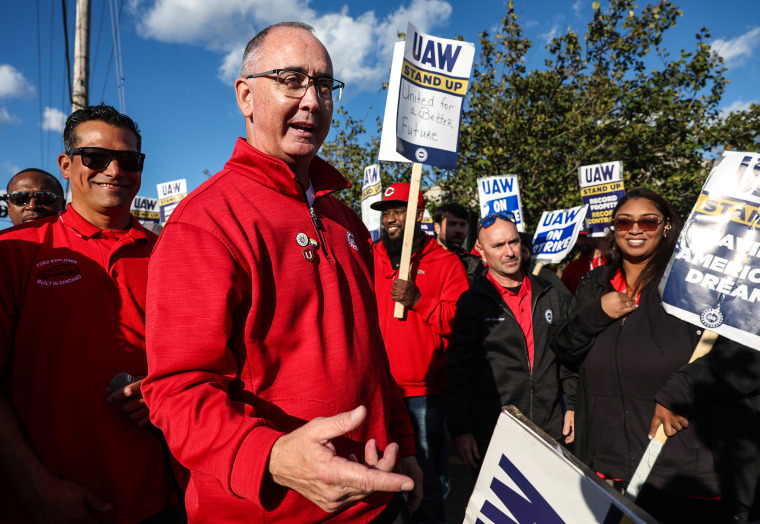
UAW’s Victory in Tennessee Ignites Southern Supporters, Yet Skeptics Remain Unfazed
The United Auto Workers (UAW) achieved a significant victory in Tennessee, invigorating the hopes of supporters but leaving some skeptics unconvinced. This development marks an essential stride in the UAW’s progress, especially in the South, a region historically resistant to union activity.
The UAW successfully organized 87 tool and die maintenance workers at Volkswagen’s Chattanooga plant, resulting in these workers being granted distinct bargaining rights. This victory has been particularly uplifting for the UAW and its supporters, marking its first successful organizing drive at a foreign automaker in the South. However, the UAW has been making steady inroads in the region; this win is not an isolated incidence but the result of persistent effort and determination.
This achievement in Tennessee has generated a wave of expectation among pro-union advocates who see this as potential for future victories. Many hope that this win will serve as an impetus for igniting union support and fostering a culture of labor organization across all workers in the auto industry in the South.
The UAW, renowned for representing auto workers from the epicenters of the automobile industry in the North, has been working diligently to extend its reach into the South, an area known for its traditionally conservative stance on unions. A victory here fuels hope for future wins and signifies the changing attitudes towards unions in the South.
This success story, however, does not indicate an undeniable shift in labor culture in the South. The skeptics remain unmoved, arguing that the UAW victory is a microscopic blip in the grand scheme of things and does not denote a tidal shift in the overall anti-union sentiment in the South.
Skeptics point out that the win only included a small fraction of the Volkswagen plant’s employees, about 160, and question the UAW’s efficacy in leveraging this for broader wins. Critics also predict that manufacturers could retaliate by relocating their facilities. Adding to the skepticism is the dark cloud of a corruption scandal looming over the UAW, jeopardizing its credibility and reputation, which could play a pivotal role in future organizing drives.
Proponents counter these arguments by emphasizing the symbolic significance of the win, asserting that it’s not the number of workers that matters, but the affirmation of the right to unionize. They argue that this victory presents a compelling precedent which boosts their moral courage and fuels the argument for unionization rights, despite the strong opposition in the South.
Moreover, UAW backers stress on the crucial role unions play in protecting the rights of
